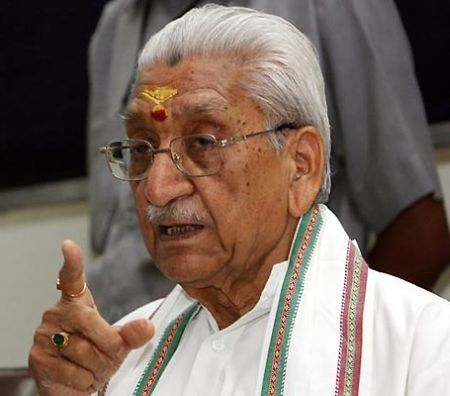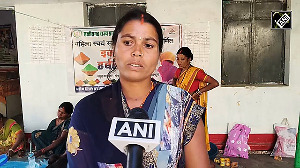 Vishwa Hindu Parishad leader Ashok Singhal, who rose to prominence playing a leading role in the Ram Janambhoomi movement in the late 80s and after, died on Tuesday at a private hospital in Gurgaon.
Vishwa Hindu Parishad leader Ashok Singhal, who rose to prominence playing a leading role in the Ram Janambhoomi movement in the late 80s and after, died on Tuesday at a private hospital in Gurgaon.
Singhal, 89, who was admitted to Medanta Medicity hospital on Saturday with complaints of acute breathlessness and other problems, died at 2.24 pm following cardio-vascular failure and septicaemia, said VHP International President Pravin Togadia.
A bachelor and a Rashtriya Swayamsevak Sangh pracharak all his life, Singhal, adopted an aggressive style in the ‘kar sewak’ campaign in the build up to the demolition of the Babri Masjid in December, 1992.
A metallurgy engineering graduate from Banaras Hindu University, he pitchforked the organisation in the Ayodhya Ram temple movement and sought to internationalise it by recruiting supporters and organising branches world wide. The overseas supporters contributed immensely to the VHP campaign.
Singh was in the Intensive Care Unit under treatment in the hospital after he was diagnosed with right lower lobe pneumonia. He was on the ventilator from November 14 evening.
A team of specialists comprising critical care, respiratory, cardiology, endocrinology, neurology and nephrology had attended to Singh, the hospital had said on Monday.
Prime Minister Narendra Modi condoled Singhal’s death, whom he described as a "force behind several noble deeds and social work", and said his demise was a "deep personal loss" for him.
"The demise of Ashok Singhal ji is a deep personal loss. He was an institution in himself, whose life was centred around serving the nation," he tweeted.
"Ashok Singhal ji was the force behind several noble deeds & social work, which benefitted the poor. He is an inspiration for generations," Modi said in another tweet.
The prime minister added, "I was always fortunate to receive Ashok ji's blessings & guidance. My condolences to his family & countless supporters."










 © 2025
© 2025